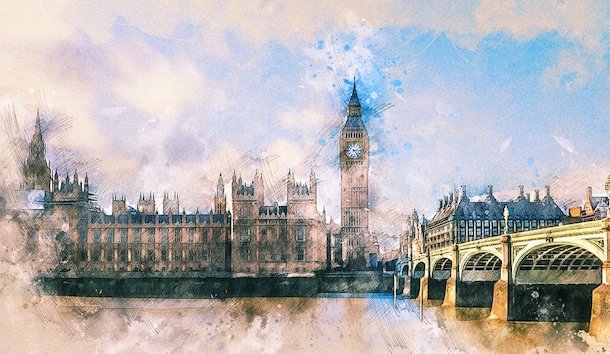“The Westminster bubble” refers to politicians, civil servants and journalists who work in and near the Palace of Westminster. They dwell in a world that is largely divorced from the concerns of the public beyond the M25 (or “beltway”) and is regarded as alienated from the electorate. It is also, as recent events show, alienated from reality.
The late Parliament lasted for two and a half years. By law, the Fixed Term Parliaments Act, it was supposed to last five years. In the event, a “notwithstanding” bill was passed, allowing Parliament by a simple majority to override that law and go for a general election. Boris Johnson and Jeremy Corbyn have not received as much credit as they deserve for agreeing on that bill. They ended what has been variously known as the Long Parliament, followed by the Rump Parliament, the first being cropped by Cromwell’s enforcer Colonel Pride, the second by Cromwell in person. His words then ring down history: “Come, come. I will put an end to your prating. You are no Parliament.” These are astonishingly like the words lately hurled at the Commons, the “zombie” Parliament, and from the Attorney General: “this Parliament is dead.” The leaders of the Conservative and Labour Parties are no Cromwells, but they found the only way to break a Parliament incapable of anything but dissent from whatever proposals the Government made.
The remarkable record of that failed Parliament is that of its two Prime Ministers. David Cameron, Prime Minister (2010-2016) has now published his memoir of his period in office, piquantly titled For The Record. It is a revelation of what is off, as well as on, the record. His administration was crippled by the Fixed Term Governments Act, passed with no significant public discussion or manifesto promise late in 2011. It took away the right all previous Prime Ministers had enjoyed to call an election when they wished, an expedient often used to solve a political problem. It has been a resource of governments for centuries. Cameron abandoned it because of a coalition agreement with Nick Clegg, leader of the LibDems. There is no point in heavily underlining ironies when they abound on the surface, but Cameron’s political career is over and Clegg flourishes in the warmer clime of Zuckerberg’s California. His constituency dismissed him for reneging on student loans.
When For The Record came out, I turned at once to his coverage of the FTPA. There is none. Not a word in the index or text. The Act which Vernon Bogdanor, the constitutional expert and Cameron’s tutor at Brasenose termed “wretched” is ignored. And Bogdanor is on record as saying that Cameron was “one of his ablest students.” What can the others have been like?
The chapters on the referendum, the issue that broke Cameron’s premiership, are especially revealing. He believed that the Remain side would certainly win, and made no attempt to assess the nation-wide will to Leave. I find it astonishing that he made no attempt to commission a series of private polls, which through subtly-varied questions would have shown him the people’s disposition. He was aware of the splits in the party and cabinet, but did not take them fully seriously: in a pregnant sentence, “The latent Leaver gene in the Tory Party was more dominant than I had foreseen” (p. 655). Right up to the small hours of the declaration morning, he was sure of victory. There was nothing of Churchill’s instinct of defeat: “However, just before dawn I woke suddenly with a sharp stab of almost physical pain. A hitherto subconscious conviction that we were beaten broke forth and dominated my mind.” Cameron in the end was not equal to his great task.
Much the same can be said of the lesser fry. The Conservative Party in the Commons is losing over 50-odd members (that we know of, before the election) because they overrated their individual power to change the direction of policy. It is certainly true that Theresa May became incapable of sacking anyone at all, but this absence of discipline flattered the malcontents. They ignored Disraeli’s advice: “Damn your principles! Stick to your party.” After the election of 2017 they must have thought they had five good years to go. In the event it was two and a half years, a kind of reverse prison sentence (offenders have routinely to serve half their time). Defeated MPs almost never stage a come-back these days, as they often did in the past. A certain light-headedness seems the characteristic of the late Parliament. I am happy with the widespread term “the Westminster bubble,” but would suggest my own image, coming from the Beatles: “We all live in a yellow submarine.” Submarines do not show at their best when they are forced to surface.



Leave a Reply